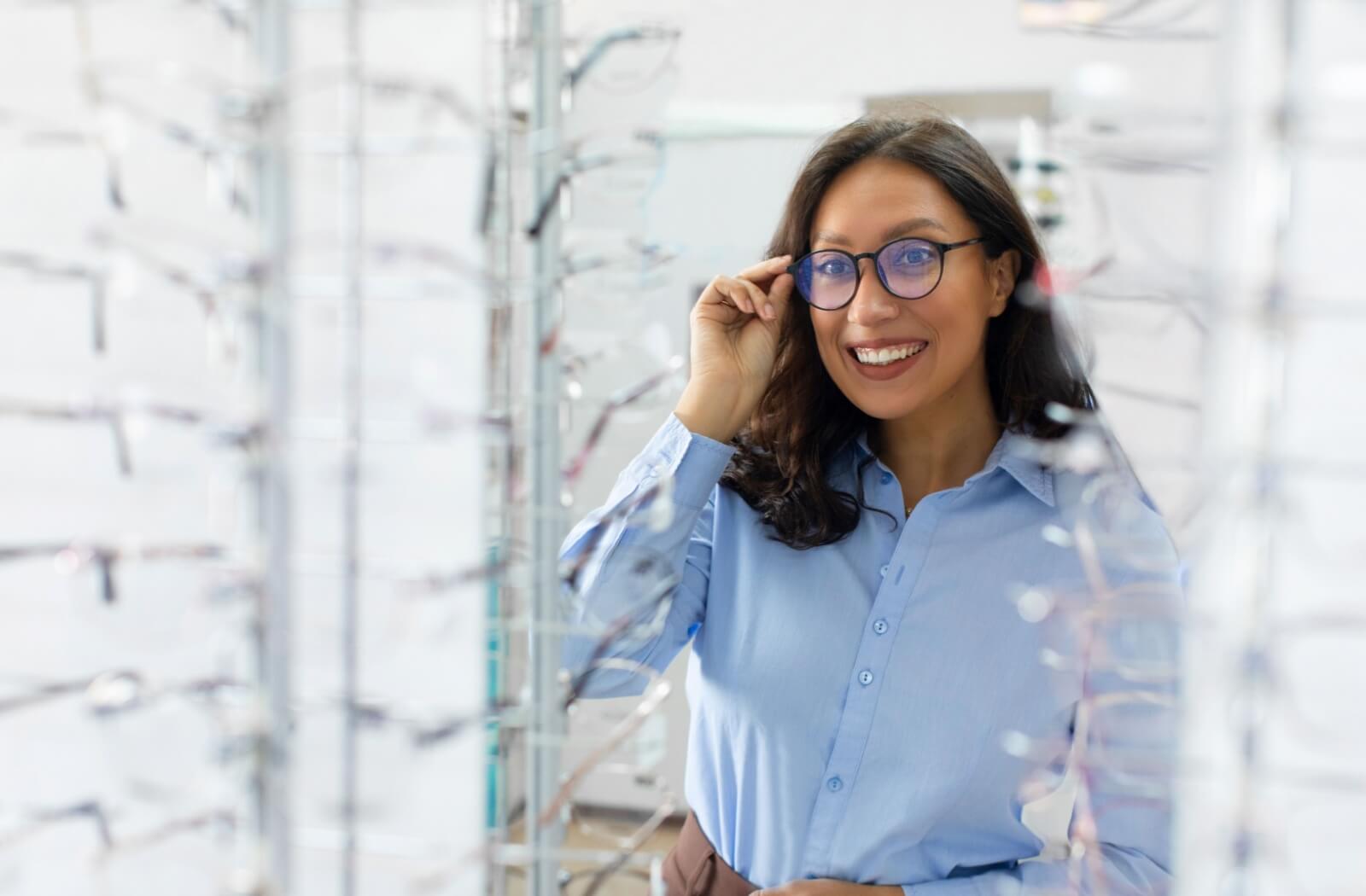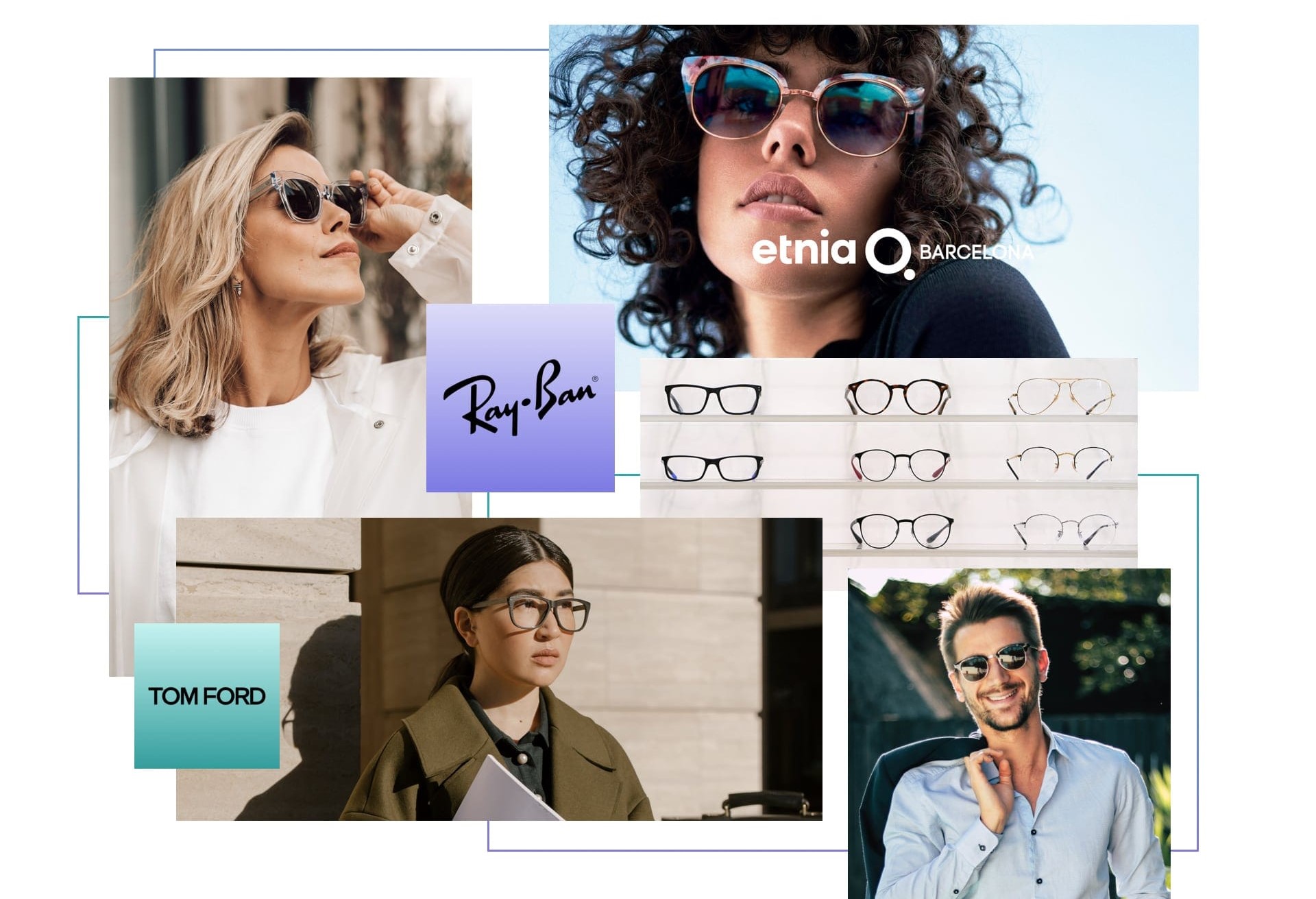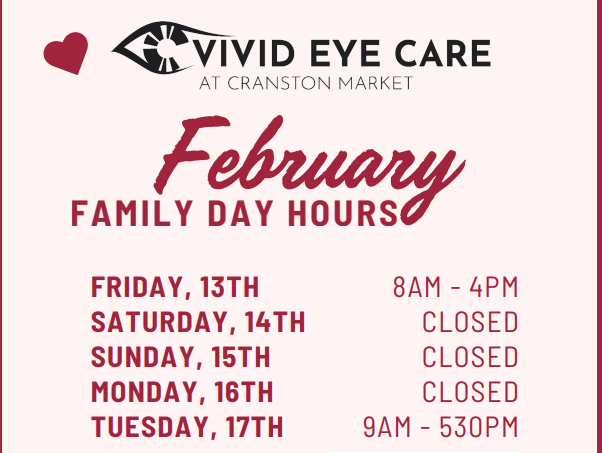You might ask this question when you get your first pair of glasses or a new prescription, as it’s fairly common to notice your vision seems blurrier than it was before you had glasses at all. It’s not uncommon to wonder if your eyes can become dependent on them.
Glasses don’t weaken your eyes. They simply correct your vision so you can see clearly. If it feels like your eyes have gotten worse after wearing them, it’s just because you’ve adjusted to seeing things in focus — not because the glasses changed your eyes.
The Reality of Eyeglasses
Your prescription lenses are designed to bend light so it focuses directly on your retina (the back of your eye). This process corrects common errors in the way light bends, which are called refractive errors. The lens bends light, correcting it, so that the result is the sharp, comfortable vision you need to go about your day.
Why Your Brain Prefers Clear Images
When you start wearing glasses, your brain quickly adapts to seeing the world in high definition. This isn’t a sign of physical dependency: It’s just your brain’s preference for clarity. Once you know how clear things can be, blurry vision seems much more obvious.
Why Vision Seems Blurry After You Take Glasses Off
Sometimes, after removing your glasses, everything looks blurry. That feeling is a normal part of your brain’s adjustment. It’s a matter of perception, not a sign that your eyesight is getting worse. While wearing glasses does not harm your vision, it is possible for eyesight to improve with proper care and regular check-ups.
The Contrast Effect
Going from the crystal-clear view your glasses provide to your natural, uncorrected vision can feel like a big change. This sharp contrast may make your uncorrected vision feel worse than you remember. Your eyesight, however, has not actually changed.
Your Brain Adapts to Clarity
Your brain is always looking for clear information. After you wear glasses for a while, your brain adapts to the new, detailed input. When you take them off, your brain has to work harder again to interpret blurry images.
New Glasses and the Adjustment Period
Getting a new prescription means your brain and eyes have to adjust. It’s normal to need a little time to get in sync with your new lenses. You may just need a quick adjustment from one of our eye doctors.
What to Expect at First
For the first few days or up to 2 weeks, you might experience:
- Mild eye strain
- A slight “fishbowl” effect
- Depth perception that feels a bit off
When to Check Back In
If blurriness, headaches, or discomfort continue for more than a couple of weeks, it’s often a good idea to schedule a follow-up. The fit of your frames or the prescription may benefit from a small tweak. Your comfort is important, which is a key reason why you should buy glasses from your optometrist to help achieve a perfect fit.

What Really Causes Vision Changes?
While wearing glasses doesn’t harm your vision, your eyesight can change over time for other reasons. These changes are a natural part of life and are completely unrelated to wearing glasses.
Natural Age-Related Changes
As you get older, your eyes change. Presbyopia is a common condition that typically starts in your 40s and can make it harder to focus on things up close. This is why many people need reading glasses or bifocals as they age.
The Role of Regular Eye Exams
Regular check-ups are key to monitoring your eye health. A complete eye exam can track prescription changes and screen for other conditions. Routine eye exams are vital for people of all ages to detect issues early.
Frequency of Wearing Glasses in Adults and Children
Whether you need to wear your glasses constantly or just for specific activities typically depends on your eyes and your lifestyle. There’s no single rule that applies to everyone, so following the guidance of an eye doctor is usually a good idea.
Follow Professional Advice
Your eye doctor can give you personalized recommendations based on your prescription. Some people need glasses for all waking hours. Others may only need them for driving, reading, or computer work.
Children’s Visual Development
For children, wearing glasses correctly can be an important part of healthy visual development, which is often monitored during children’s eye exams. Proper vision care in childhood helps support a lifetime of healthy sight.
Ditch the Blurriness
Your eyes and vision are precious, and your eyeglasses are a partner in your health journey. They are there to support your eyes, often allowing you to see the world with clarity and ease. For comprehensive care for your entire family, reach out to our team at Vivid Eye Care to book an appointment.






















